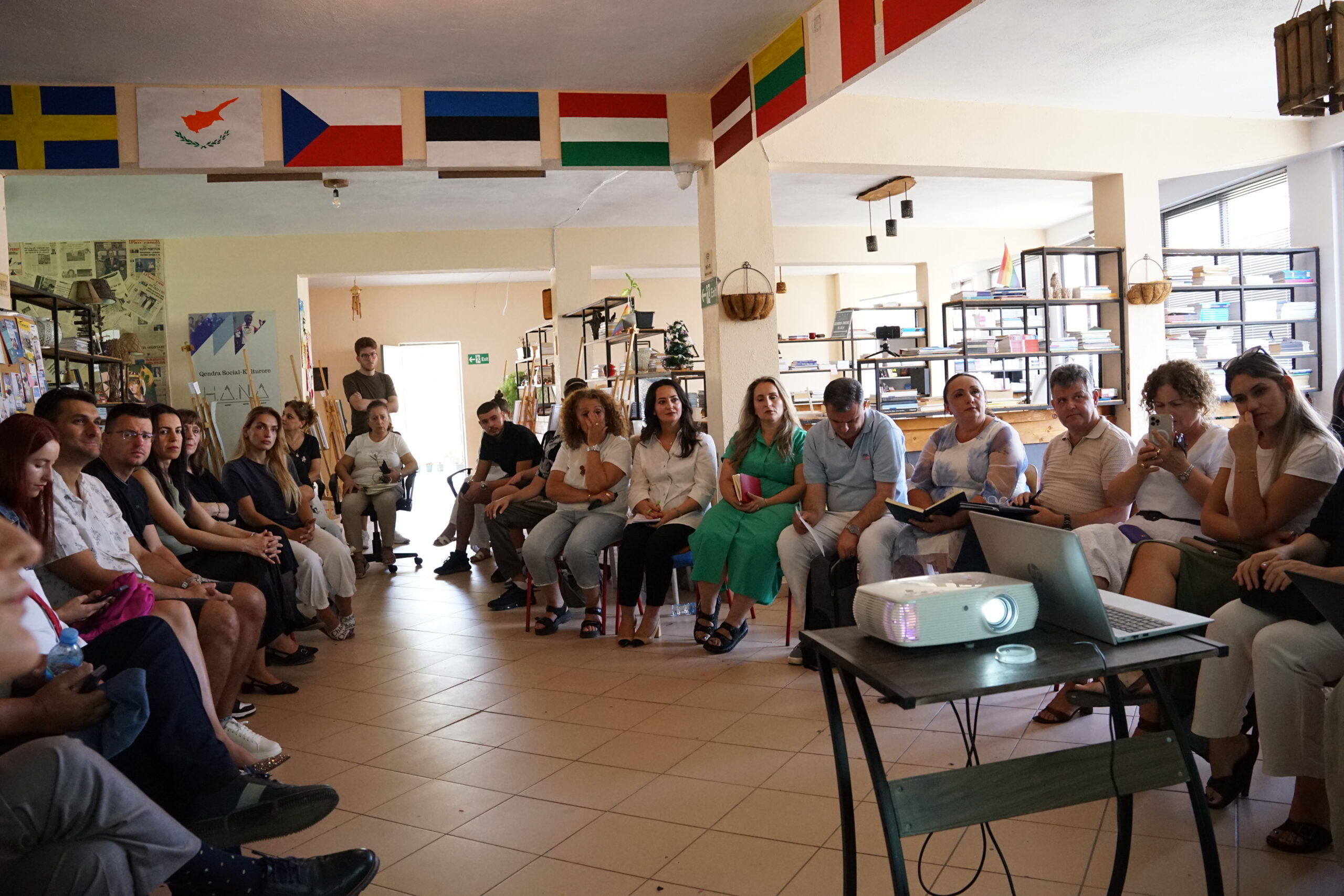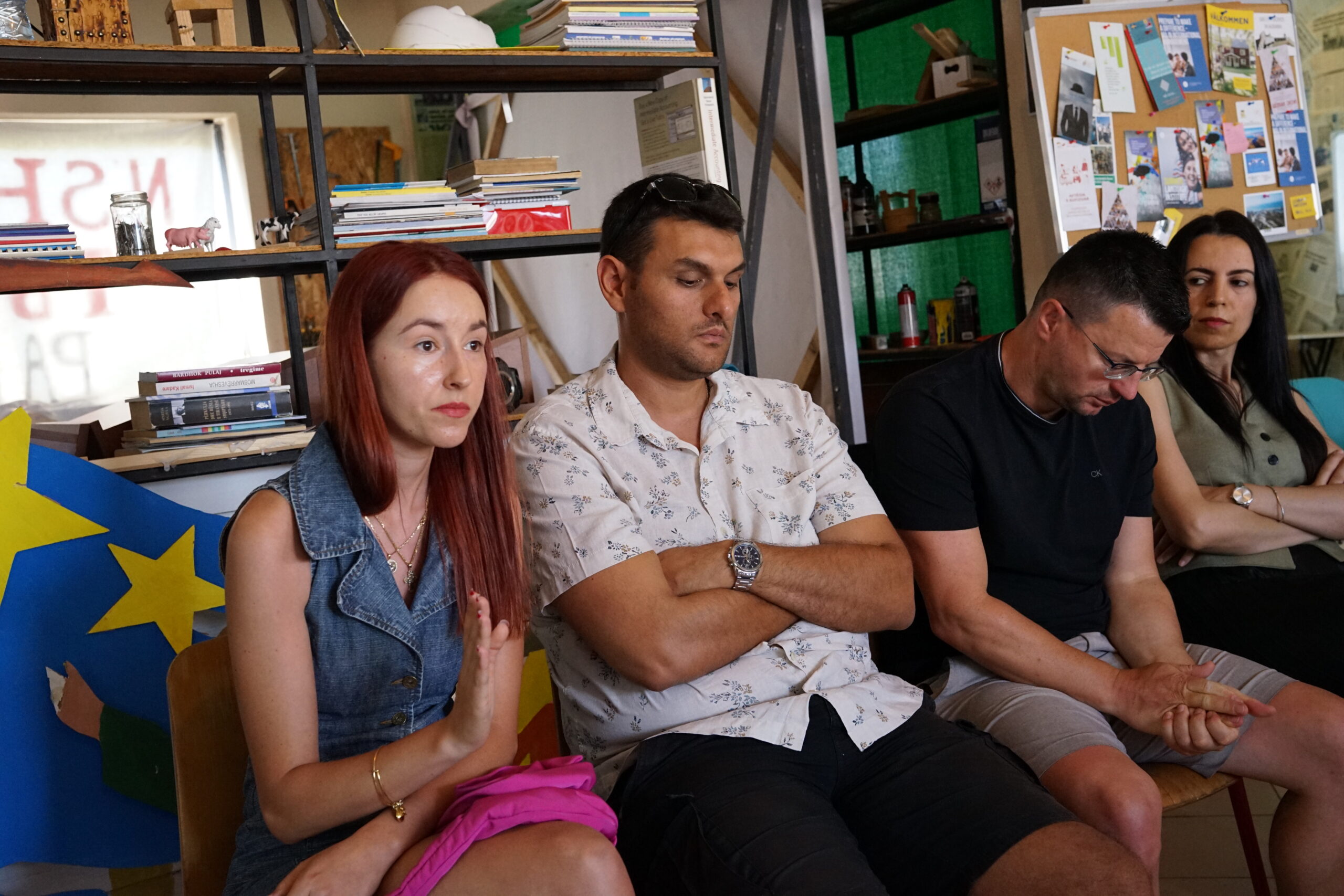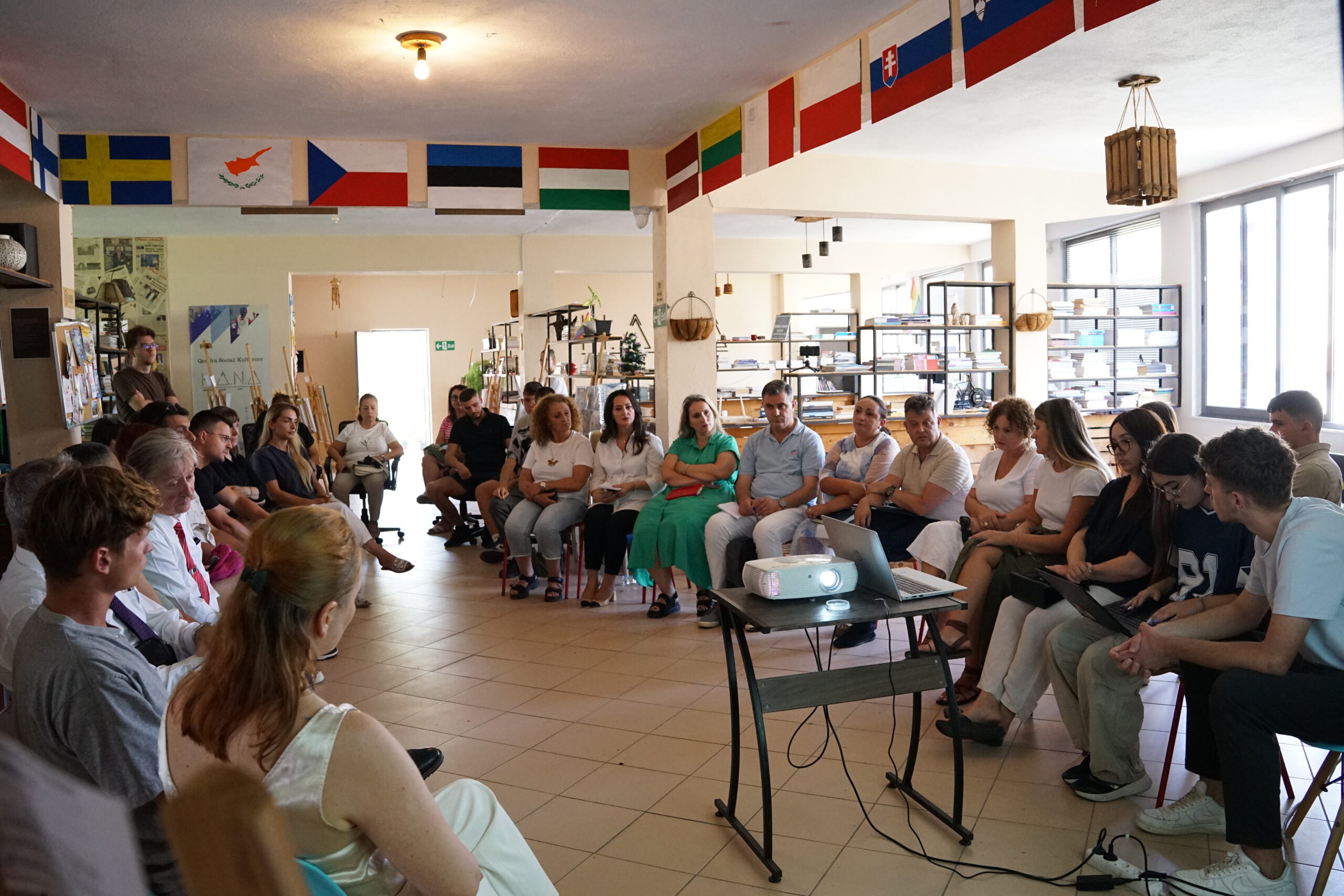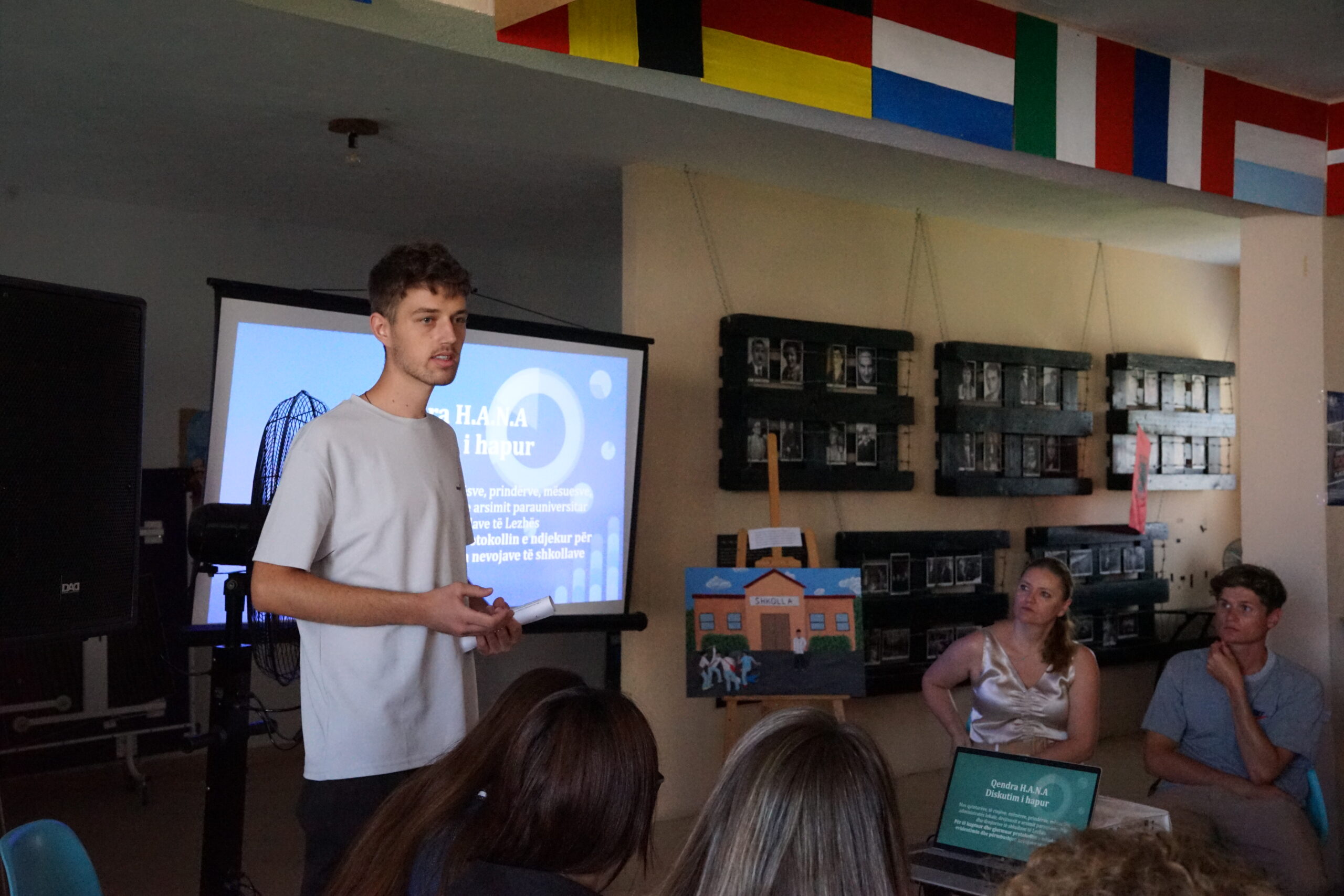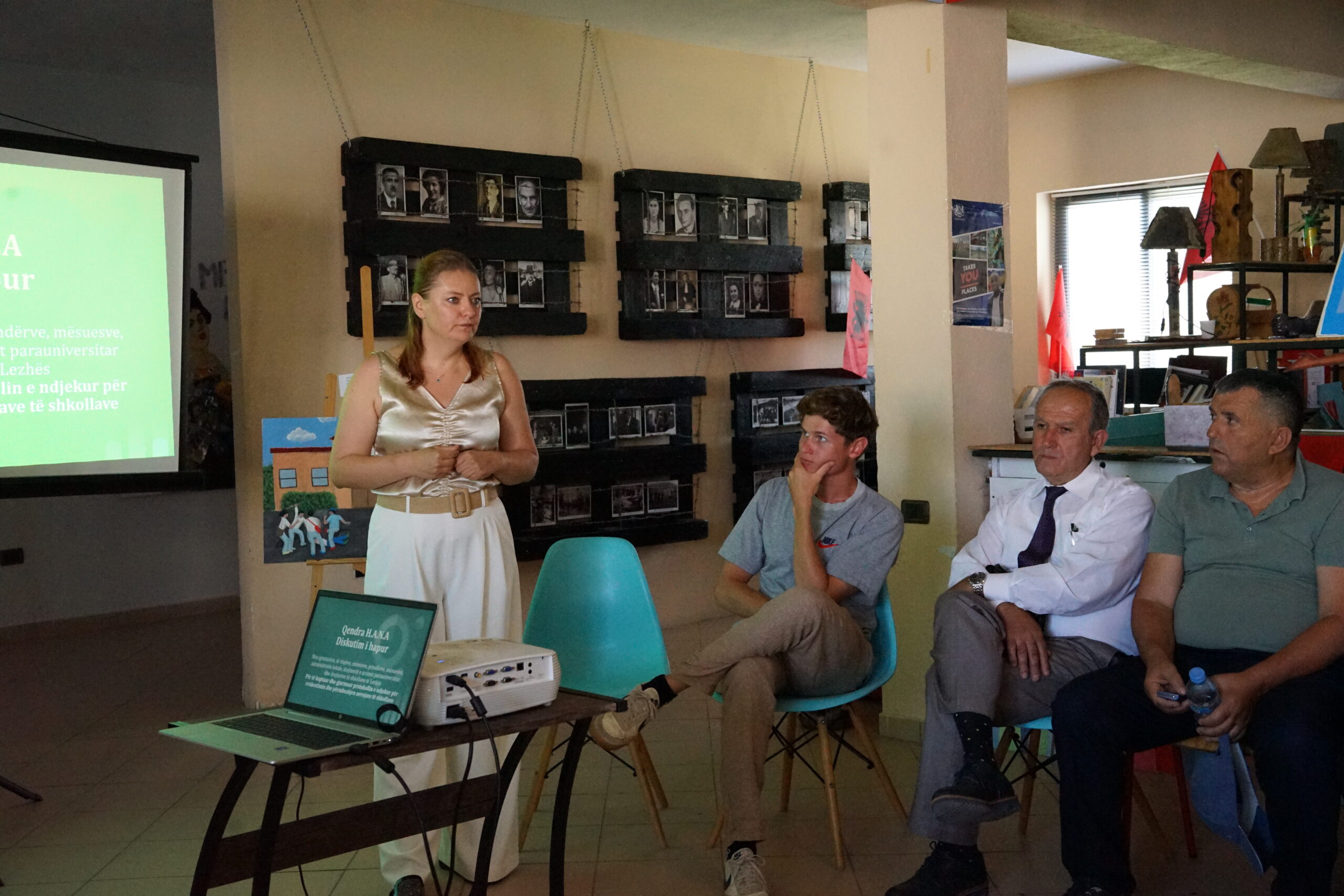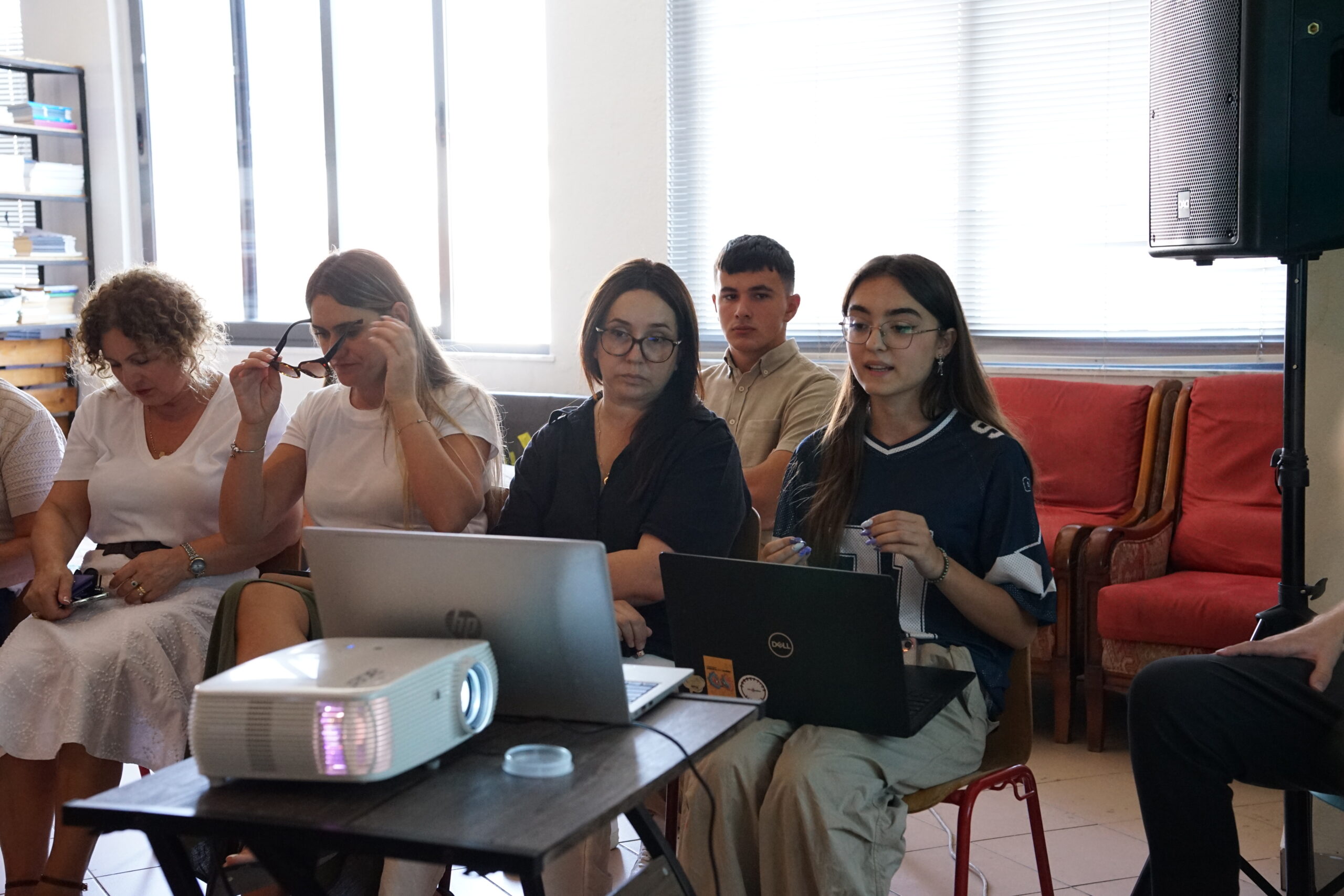Alienum phaedrum torquatos nec eu, vis detraxit periculis ex, nihil expetendis in mei. Mei an pericula euripidis, hinc partem.
Call us +355 68 903 9872
Yesterday, we held a reflective meeting—another important step in our ongoing efforts to address some of the most pressing challenges facing pre-university education in Lezha.
Drawing from our direct engagement with schools, the fact that many of our youth are themselves students in these institutions, and years of documented work, we believe we have built a grounded and dignified understanding of the situation—far from unfounded or biased interpretations.
With the exception of the municipal education office of Lezha, we had the pleasure of welcoming representatives from the Regional and Local Education Directorates (DRAP and ZVAP), psychosocial staff, teachers from several schools in the city, representatives from the municipal social services department, members of the Municipal Council, engaged citizens, parents, and civil society organizations. This diversity of voices and perspectives made the conversation both valuable and necessary.
The meeting was rooted in a series of initiatives led by H.A.N.A and the Activists’ Club throughout 2024–2025, including creative protests, student surveys, thematic exhibitions, and official requests for transparency. The key issues discussed included:
The politicization of schools and the use of public school platforms—especially online spaces—for political propaganda;
Physical and emotional insecurity within educational institutions;
The lack of effective psychosocial services for students;
The absence of transparency in how school budgets are allocated for investment and maintenance.
While the conversation often went beyond these topics to touch on broader systemic concerns and even some positive practices that deserve recognition, this only reinforced the need for more open and frequent dialogue about public education.
Civil society is not a passive observer—it is part of the community and has a moral responsibility to contribute to building a fair, equitable, and transparent education system.
Next steps: We will analyze the data from our most recent student survey, which sparked debate about its credibility. We stand by the legitimacy of online tools as mechanisms for gathering public opinion and see no reason to avoid analyzing or using their findings as a basis for action. In the coming weeks, we will prepare a set of concrete recommendations and continue engaging with all institutional and community actors involved.
Change doesn’t always start in offices—in fact, in this case, it starts in the classrooms where our young people sit. We are particularly proud that this initiative was started, developed, and led independently by students from both public and private schools in Lezha—a rare example of grassroots civic engagement of this kind.
The importance of Student Governments and collaboration with them was also emphasized. While some of the young participants had served as student senators, it was clear that these structures need greater support to understand their real potential for impact—especially if they are freed from the fear of addressing issues beyond the classroom.
In a country where union culture is almost nonexistent, it’s not hard to see why these gaps persist. But that is precisely why initiatives like this one must be supported.

